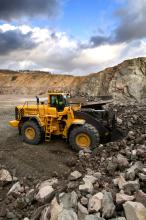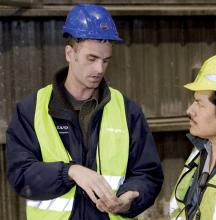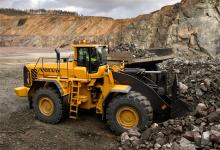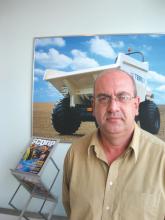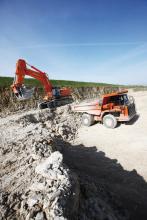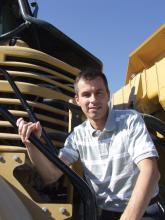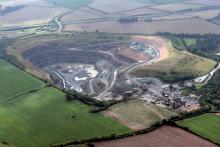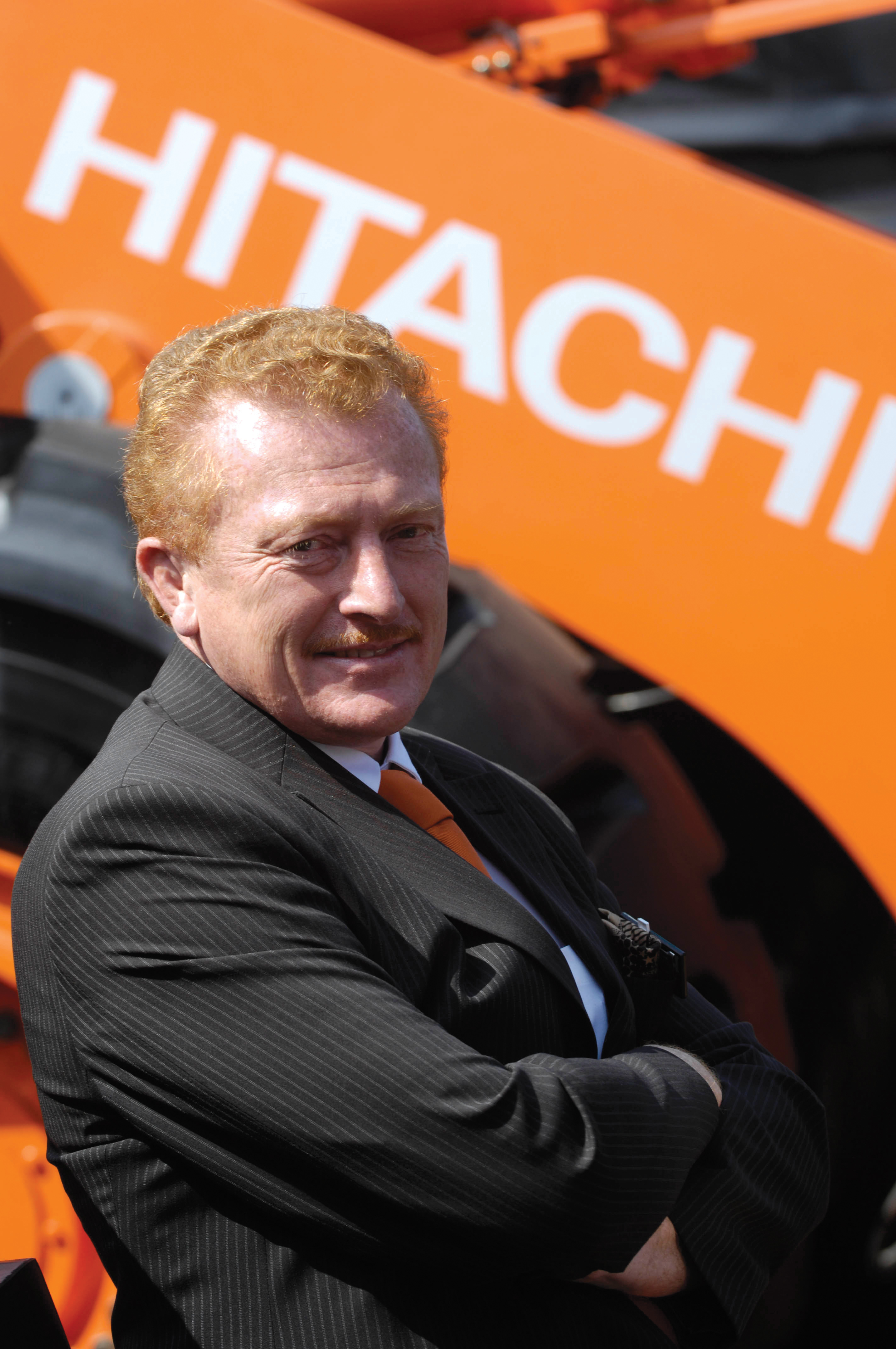
Getting the right machine for the right application is an essential part of Malcolm Edwards' role with Hitachi. He spoke to Claire Symes about his career and the industry
According to
Talking to Edwards it is clear that he thrives on the challenges presented by working in the quarrying and mining sectors but he did not set out for a career in this industry. Although he has been involved with Hitachi for almost 25 years, he started out working in the rail business.
Edwards is based in the UK and his primary responsibility is sales to dealers of 50tonne+ excavators, rigid dump trucks and the company's new large wheeled loader range. His territory extends from Iceland and Scandinavia to Estonia, Latvia and Lithuania and also includes the UK, Ireland and Israel.
His experience means that he frequently gets involved in larger projects in the rest of Europe.
He first became involved with Hitachi when he became a field service engineer in June 1986 with one of the company's dealers in the UK. He later joined Hitachi in 1995 when the head office was based in the UK and the company was then Fiat-Hitachi.
When Hitachi and
"One of the main reasons for this role was that sales people tend to sell on price, rather than technical specification, but Hitachi wanted to ensure that we were delivering the right machine for the right application," he explained.
Hitachi had recognised that Edwards had an ability to assess the job but it was a natural career path for him. "My father was involved in engineering and I have followed in his footsteps," said Edwards. "I learnt about basic mechanics from the age of seven." Edwards undertook an apprenticeship on the railways after leaving school and work in that industry until 1986 when he joined Hitachi's dealer.
"My role on the rail network was to manage the technical equipment that was used to maintain the rail alignment, but I wanted a change and to find a role that was more challenging," he said. "The opportunity with Hitachi was an ideal one as at that time there were only three service engineers working for the company in the UK so there was a lot of responsibility." The move to working with quarries and aggregates has not been such a huge leap in terms of technical understanding as it might first appear. "Through the rail sector I was involved with the use of aggregate ballast for aligning the tracks so in Hitachi I could see ways to improve and made many suggestions to the company to achieve this."
One of Edwards' most vivid early memory of his involvement with Hitachi was during the late 1980s working with mining specialist Shore Brothers in South Wales. "We delivered the first EX1800 to the site and I was involved in the organisation of the set up on site," he said. "It gave me hands on experience very early on in my career with the company.
"I have always taken an interest in quarrying. As a field service engineering, the first thing you do when you get onto site is talk to the management and find out about the problem in order to assess how to best help.
"Through these kinds of discussions my interest in geology has developed over the years," he said. "The material type has a big influence on the use of the machine so this kind of understanding is essential. My knowledge has grown organically.
"I did not expect my career to take this path 15 years ago but it has been a good development. I always wanted to work as part of a team and help contribute to new machine features.
"The size of machines is one thing but I really get a lot of enjoyment out of making a recommendation to a customer and then seeing them achieve the potential cost per tonne reductions when they make the purchase. That satisfaction is the same whether it is a small or large company.
"This industry is all about the people - from the operator on site to the CEO communication is the key." Speaking about his loyalty to Hitachi, Edwards said that there is a philosophy of the company not wanting to outgrow its foundations and getting the right mix of support and new products and this is something he likes about the business.
Looking back over his career, Edwards singles out his work on a project to dam part of the Yellow River in China in 2000 as a defining moment. "I was sent out to the site to find the problem that was causing the lower than expected production rates and was given two months to bring it up to capacity," he said. ""The site was 100km along a dirt road and there was a camp on site for the workforce that was working to construct the flood control dam. There were a lot of people issues causing mechanical problems so I had to help improve staff training and servicing changes.
"The scale of the scheme was a real eye opener and I am still friends with some people I met during that period." Edwards said he has enjoyed the travel aspect of his task. "I would never be described as office-bound," he explained. "I like to get out and meet the customers. I always say that I stand alongside the dealer - not in front or behind - and offer support and the chance for them to educate themselves.
"Some projects don't come up very often so the local dealers do not have the necessary knowledge or are not up to date with advances in technology and helping them with this is a key part of
my role." A recent example of this was Edwards' involvement in equipping the new Talivara Mine in Finland and helping the dealer work with the mine operator to take the site from greenfield to Europe's largest new mine.
Edwards acknowledges that the markets have changed significantly in the last 18 months. "In 2007 and early 2008 it was a seller's market, now it is not so good but there are still a good level of enquiries," he said. "Quarries are always looking at cost - medium to large quarries almost all quantify this in cost per tonne.
"There has been some movement from the bigger quarry operators to use contractors and move from static to mobile crushing and screening equipment in a bid to operate some sites on a part time basis rather than running the sites themselves full time.
"Consolidation of the operations has been driven by demand but as demand picks up, I think it is likely that these operators will go back to operating their own equipment." However, Edwards said that lead times are lengthening again so such operators may not have such ready access to new equipment as they may expect. "Last year lead times were around three months for some items, not it is closer to seven due to the reduction in inventories," he said.
"Nonetheless, investment in safety is on-going and capital for this is becoming more readily available, although this may not be seen on the ground until the first quarter of 2011. Until then I expect companies to invest in overhauling existing equipment or use contractors." Whatever changes the coming year brings, Edwards seems to relish the challenge it will bring.

